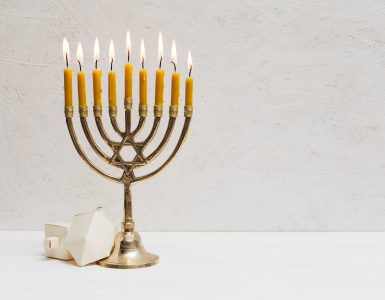Striking Doctors
The COVID-19 pandemic placed a heavy burden on hospitals around the world. Apart from the need to increase capacity to respond to the increasing numbers of patients, hospitals needed to build entirely new systems, including specialized COVID departments (some housed in temporary complexes), purchase personal protective equipment (PPE), train staff, and continually update staff on rapidly changing practice guidelines.
This came at great cost. At the height of the pandemic, hospital directors in Israel revealed that their institutions had suffered severe economic crises, to the point that staff threatened to go on strike, leaving the hospital on an emergency footing. This was intended to compel the government to issue legislation to grant hospitals emergency funding, estimated at billions of shekels.
Strikes are an accepted practice of labor unions in many areas of the economy. Trade unions such as the teachers’ union, port workers’ union, and other public sector unions, are able to shut down the economy, and leverage the fear of heavy economic losses caused by a strike to bend the hand of government or industry in submission to their demands.
However, although strikes are considered a legitimate (though aggressive) step in commercial and other public sector fields, in areas such as medicine, policing, and rescue services (such as the fire department), the public has mixed feelings. There is a lively debate as to whether people working in these fields have the right to strike.
These debates came to the fore on several occasions when doctors’ unions declared a strike, particularly during the long and comprehensive strike of 1983. During the four-month strike medical staff in hospitals were greatly reduced and the public health system overall was greatly affected. At that time, several of the Gedolei haPoskim debated whether the strike was legitimate. This essay will briefly review their various positions and the relevant Halachic principles.
We must begin by noting that physicians and other medical stuff are permitted to charge fees and earn salaries. We have discussed this in a number of previous essays and will review the pertinent facts here.
Medical treatment is a Mitzva, and it is prohibited to charge a fee for the performance of a Mitzva. Nevertheless, the Ramban (Toras haAdam, Inyan haSakana), based on the Gemara in Bechoros (29a), draws a distinction between charging a fee for actual medical treatment, which is forbidden, and “Schar Batala” (a fee for the time spent performing the Mitzva during which he could have earned money in another capacity) and “Schar Tircha” (a fee for the trouble or effort entailed in the Mitzva’s performance) which is permissible. The Ramban’s position is codified by the Shulchan Aruch (Y.D. 336:2).
Some Poskim cite the Tosfos haRosh (Brachos 60a) who explains that when Chaza”l who granted a physician “permission to heal” – “Reshus l’Rofei l’Rapos” – they meant to permit him to receive remuneration for his work, unlike for other Mitzvos. The reason they did so was to encourage him to provide good treatment for his patients (see below).
Today, physicians are paid considerably more than Schar Batala and Schar Tircha. This is justified for several reasons – see Igros Moshe (Y.D. 4:52) and Nishmas Avraham (Y.D. 336).
What do the Poskim say regarding a physicians’ strike for better pay?
On 10th Sivan 5743, the director of Shaare Zedek Medical Center received a letter from Rav Yitzchak Yaakov Weiss zt”l (Ra’avad of the Eida Charedis) and Rav Shlomo Zalman Auerbach zt”l. The letter was disseminated to the medical community.
To the director of Shaare Zedek hospital and the physicians who work there.
We have heard that some physicians have abandoned their posts and left their patients, and that there are fewer physicians in the hospital than on Shabbos, which is the minimum required for saving lives and matters of Pikuach Nefesh which are even permissible on Shabbos. The Shulchan Aruch (Y.D. 336:1) rules, “A doctor who refrains from treating [a patient] is a spiller of blood”, therefore you are obligated to ensure that there is no less a presence of doctors in the hospital than there is on Shabbos. This obligation is incumbent upon all the physicians. We ask that you disseminate this ruling to all of the physicians in the hospital.
This letter was written at the height of the strike, as the majority of physicians had abandoned the hospitals. Some time later, a group of physicians began a hunger strike. On 8 Tammuz, Rav Weiss and Rav Shlomo Zalman wrote another letter in which they decried the state of affairs:
We have heard that there are physicians who are planning to stage a hunger strike. We pronounce that according to the Torah a person has no permission to perform any act which could cause him physical harm such as starvation for a significant length of time, for the sake of higher pay. The Rambam (Hilchos Chovel u’Mazik 5:1) rules, “It is forbidden for a person to wound himself or his fellow”, and certainly [it would be forbidden for] a physician who does so, for he weakens himself and will be unable to treat his patients adequately. In addition, the Halacha “A doctor who refrains from treating [a patient] is a spiller of blood” (Shulchan Aruch Y.D. 336) is also applicable. The obligation to not refrain from providing medical treatment also applies when the physician is compelled to do so by non-Halachic behavior of his colleagues.
A week later, an additional letter from the Chief Rabbis of Israel – Rav Avraham Shapira zt”l and Rav Mordechai Eliyahu zt”l – was published. They wrote that at the point that the physicians were demanding that the matter be brought to arbitration, they were justified in refraining from treating certain patients. However, once their employers had agreed to do so, “there is a grave prohibition for physicians to halt medical treatment to needy patients… therefore, the physicians are obligated to halt the strike, including the hunger strike, and to return to work immediately, so as not to transgress the precept ‘do not stand idly by the blood of your fellow’.”
Rav Eliyahu Bakshi Doron zt”l (in Shu”t Binyan Av 3:69) discusses the question of physician’s strikes at length. He begins by asserting that any worker has a basic right to strike if his work conditions do not meet his expectations. This assertion is based on the Shulchan Aruch’s ruling (C.M. 333:1), “If a worker begins his work and wishes to renege in the middle of the day, he may do so. Even if he has already received payment for the work and he is unable to repay the employer – he may renege. The money he received becomes a debt. As the verse states ‘For the Children of Israel are servants to me’ – they are not servants to other servants.”
Rav Bakshi Doron explains that the Shulchan Aruch cites the reason for this Halacha and does not suffice with the basic ruling in order to distinguish it from the other laws of Choshen Mishpat. The other Halachos are based on agreements and legal rights of the employer and employee, or of the buyer and seller, but this Halacha stems from a moral-Halachic principle, namely, that every employee has the right to stand up for his freedom and rights at every stage of his work and the employer has no rule over him to prevent him from doing so.
Rav Bakshi Doron adds that with regard to physicians, it is fundamentally important that they receive appropriate remuneration so that they are content. He bases this on the Gemara’s ruling that if a person injures his fellow (and is obligated to pay for his medical expenses), he cannot offer him treatment from a doctor who does not charge a fee. The injured party may claim “A physician who works for nothing is worth nothing”. The Rosh explains (Bava Kama 5) that this is because “his heart and his thoughts are not paying attention to the actual needs of the patient as he is not expecting to receive payment.”
In other words, even a specialist physician may not perform his duties faithfully if he doesn’t receive appropriate remuneration. Therefore, the public are obliged to pay appropriate salaries to physicians to free them of financial concerns and allow them to focus on their holy work of treating patients. Certainly, we should rule out the use of government restraining orders that force physicians to return to work despite the dispute over their pay.
The above discussion addresses the duty of the government to address the concerns of the physicians seriously. However, are physicians themselves permitted to strike? Is there a difference between the medical field and other fields of employment in which it is permissible to strike?
Assumedly there is no justification to permit a strike which will cause harm to patients. However, this may depend upon the basis for the obligation of a physician to save lives. The Gemara (Sanhedrin 73a) cites two sources for the obligation. The first is the Mitzva of Hashavas Aveida which also includes an obligation to restore a person’s health – “Hashavas Gufo”. The second is the precept, “Do not stand idly by the blood of your fellow”.
The Mitzva of Hashavas Gufo does not require a person to invest his own money or incur a loss, just as Hashavas Aveida does not carry that obligation. However, the Mitzva of “Do not stand idly by the blood of your fellow” would obligate him to do so. Therefore, since refraining from striking would cause a physician to lose the opportunity to improve his pay, he would only be obligated to continue to treat patients due to “Do not stand idly by the blood of your fellow”.[1]
In fact, the reason that the Shulchan Aruch (Y.D. 336) provides for the Halacha that a physician may not refuse to perform medical treatment is that it is a matter of Pikuach Nefesh, and that “if he refrains he is a spiller of blood”.
In view of the above, there is a clear distinction between doctors failing to provide treatment for patients whose lives are endangered and those whose are not. This may be why Rav Weiss and Rav Shlomo Zalman permitted doctors to strike as long as enough staff remained to tackle emergencies and to prevent patients’ conditions from dangerously deteriorating. Since no patient’s life would be put at risk, they would have no obligation of “do not stand idly by the blood of your fellow”, and the Mitzva of Hashavas Gufo does not obligate them to forego the opportunity to gain financially. They are therefore under no obligation to provide routine care if their pay is inadequate.
During discussions of the morality of
physicians’ strikes, a claim was made by medical experts that striking is
justified even if patients will thereby be harmed, for ultimately this will
lead to an improvement in quality of care. If the government would meet the
physicians’ demands, many more patients will receive better care. From a
Halachic perspective, this claim must be rejected out of hand, even if it were
true, as we do not give precedence to one life over another in matters of Pikuach Nefesh– “Ein Dochin Nefesh Mipnei Nefesh”. There is no justification for
refraining from saving the life of a patient before us even if this will allow
us to save the lives of other patients in the future.
[1] We should point out that if the physician was obligated to practice medicine due to any other Mitzva he could not invoke the aforementioned ruling of “If a worker begins his work and wishes to renege in the middle of the day he may do so” to justify striking. As stated, this ruling is based on the Drasha, “For the Children of Israel are servants to me – they are not servants to other servants”. This is only relevant to an agreement between an employer and employee – as we rule that the employer cannot act as a master over the employee. If a doctor’s obligation would be purely a matter of acting as a servant of Hashem, this tenet would not apply. It is only because his obligation is due to Hashavas Aveida – Hashavas Gufo which is a Mitzva which does not essentially obligate him to incur a loss (thus his obligation to incur a loss is not expected as a “servant of Hashem”, but only as an employee), that this idea may be invoked.
The ruling of “If a worker begins his work and wishes to renege in the middle of the day he may do so” does not apply in a case of “Davar haAvud” – where the employer will suffer a loss due to the employee’s failure to live up to the agreement. In hospital settings, the situation should surely be considered “Davar haAvud”. It is therefore unclear that this ruling would even apply.
However, one could also reason that physicians are under no obligation to provide their services in a public hospital – they can easily see private patients instead. They also have the right to ask for fair remuneration from every patient.














